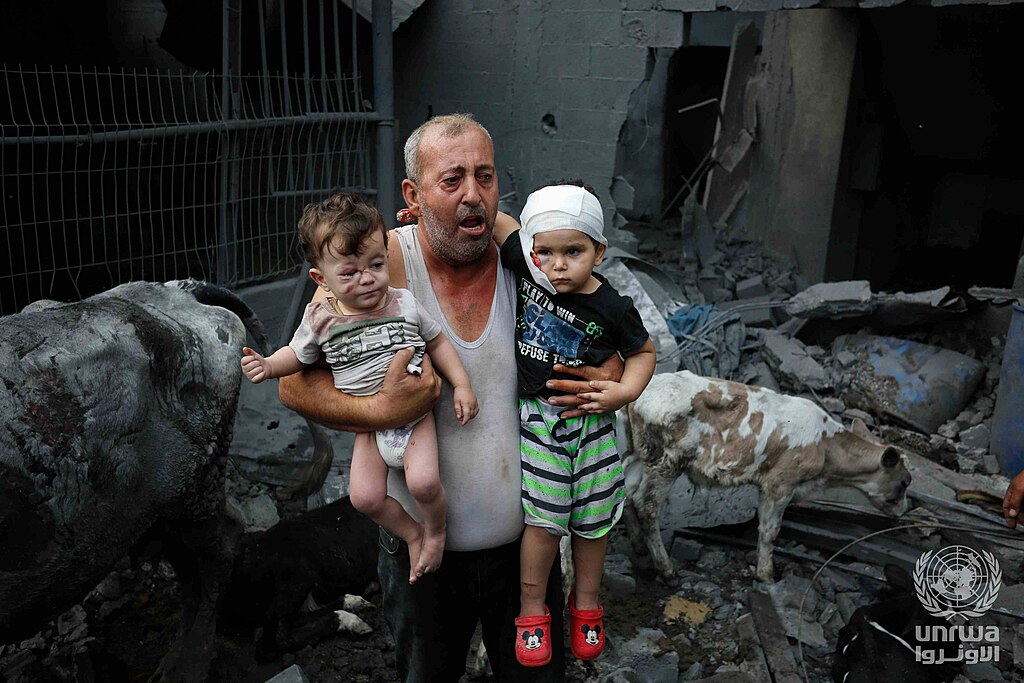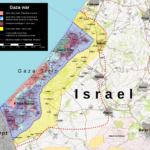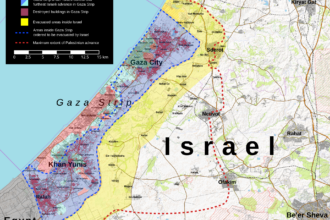A War Without Refuge
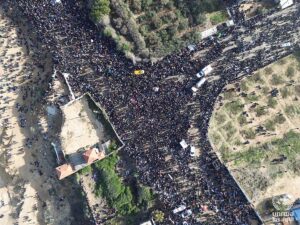
The Gaza Strip in late 2025 is a landscape of ruin. What began with Hamas’s Oct. 7, 2023, attacks and Israel’s devastating military response has metastasized into one of the bloodiest conflicts of the 21st century. Entire neighborhoods have been flattened, hospitals and schools turned to rubble, and critical infrastructure—water, power, sanitation—has collapsed almost entirely.
The human cost is staggering. Independent tallies estimate over 66,700 people killed since the war began, of whom the overwhelming majority are Palestinian civilians. Nearly 1.9 million people—90% of Gaza’s pre-war population—have been forced from their homes. Aid agencies describe the situation as “apocalyptic,” with survivors living in overcrowded camps, relying on meager aid convoys and unsafe water.
On September 9–10, 2025, Israel issued its most sweeping order yet: the total evacuation of Gaza City, home to nearly a million. Leaflets dropped from the sky warned of imminent “obliteration.” Residents faced impossible choices—pay thousands to flee southward into an already overrun al-Mawasi “humanitarian zone,” or remain and risk death under bombardment. Aid groups documented gridlocked roads, panic, and dozens more casualties in the chaos.
Settlement Fantasies and Political Realities
Even as the war raged, some Israeli ministers openly called for resettling Gaza with Jewish settlers—an echo of pre-2005 settlements dismantled during Israel’s disengagement. At a January 2024 conference, senior officials proposed “returning home” to Gaza, casting the enclave as empty land ripe for redevelopment.
Prime Minister Benjamin Netanyahu’s government has not formally adopted such a policy, but debates about re-occupation and “security zones” have circulated widely in Israeli media and politics. For Palestinians, these proposals reinforce the sense of an existential land grab under the guise of security.
The “GREAT Trust” and the Gaza Riviera
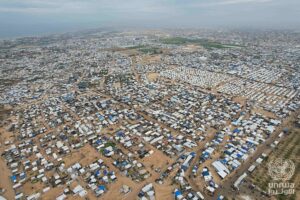
Into this void of destruction emerged an ambitious, controversial vision: the Gaza Reconstitution, Economic Acceleration and Transformation (GREAT) Trust (PDF). Marketed by allies of the Trump administration and private-sector figures, the plan imagines transforming Gaza into a “Riviera” of smart cities, resorts, and industrial hubs. Draft documents propose clearing rubble, displacing residents with incentives for “voluntary relocation,” and establishing a trusteeship that bypasses U.N. agencies.
Leading the charge is Steve Witkoff, a New York real-estate developer serving as President Donald Trump’s Middle East envoy. Witkoff has toured Gaza aid sites, speaking of 10–15 years of reconstruction. His real-estate background, combined with Trump’s own history of branded mega-projects, has drawn sharp scrutiny. Humanitarian experts warn that tying aid and rebuilding to political patronage risks dispossession on a vast scale.
The Financial Times revealed that the project was drafted with the involvement of the Tony Blair Institute and Boston Consulting Group, proposing branded zones like a “Trump Riviera” and “Elon Musk Smart Manufacturing Zone”, alongside blockchain-based land tokenization.
Following the Money: Allegations and Evidence
Allegations have surfaced that Trump, members of his family, and relatives of Netanyahu stand to profit from Gaza’s reconstruction. So far, no hard documentary evidence—contracts, financial disclosures, ownership stakes—has confirmed direct equity holdings. What exists is a pattern of proximity and perception:
-
Trump’s public promotion of redevelopment ideas in Gaza.
-
Jared Kushner’s history of regional economic blueprints that prefigure the GREAT Trust’s language.
-
Witkoff’s dual role as both envoy and seasoned property developer.
These links have been enough to fuel widespread suspicions of self-dealing, especially given Trump’s history of blurring political office with private business interests. Critics call the GREAT Trust less a humanitarian plan than a geopolitical real-estate venture. Supporters insist it is a bold path to stability.
The Shadow of War Crimes

The International Criminal Court (ICC) has issued arrest warrants for Netanyahu and Defense Minister Yoav Gallant, citing evidence of war crimes and crimes against humanity. In July 2025, judges rejected Israel’s appeal to quash the warrants. Meanwhile, U.N. experts have warned of famine conditions, describing Israel’s campaign as potentially genocidal.
Israel rejects these charges as politically motivated; the U.S. has opposed ICC jurisdiction, even sanctioning Palestinian groups that cooperated with investigators. The debate over language is fierce. While rights groups, academics, and U.N. rapporteurs increasingly invoke “genocide” and “ethnic cleansing”, Israeli officials argue such terms weaponize law against a state defending itself. The truth may ultimately be decided in international courts.
The Diplomatic Tide: Recognition of Palestine
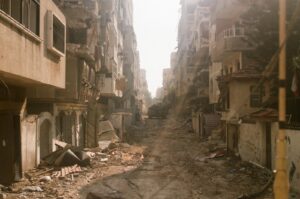
War has shifted the diplomatic map. By September 2025, 147 of 193 U.N. member states recognize Palestine, with momentum accelerating. In 2024–25, Spain, Ireland, Norway, and Slovenia formalized recognition; France, Canada, Australia, Belgium, and the U.K. have announced pathways or intentions. At the U.N. General Assembly, ceasefire resolutions pass with overwhelming support, even as the U.S. continues to shield Israel at the Security Council.
For Palestinians, recognition is a symbolic lifeline—a signal that despite war and displacement, their claim to statehood is not extinguished. For Israel, it signals mounting diplomatic isolation.
Conclusion: A Future in the Balance
Gaza today is both a humanitarian tragedy and a geopolitical chessboard.
-
On the ground, civilians endure mass death, displacement, and deprivation.
-
In Jerusalem and Washington, settlement advocates and redevelopment planners imagine a radically re-engineered Gaza.
-
In The Hague and New York, courts and U.N. chambers debate genocide, accountability, and statehood.
Whether Gaza becomes a symbol of reconstruction or a case study in dispossession depends not only on Israel and Palestine, but on the power wielded by outside actors—political, financial, and legal. The story of Gaza’s destruction and its contested future is not yet finished. But the scars—etched in rubble, exile, and grief—will shape the region for generations.

